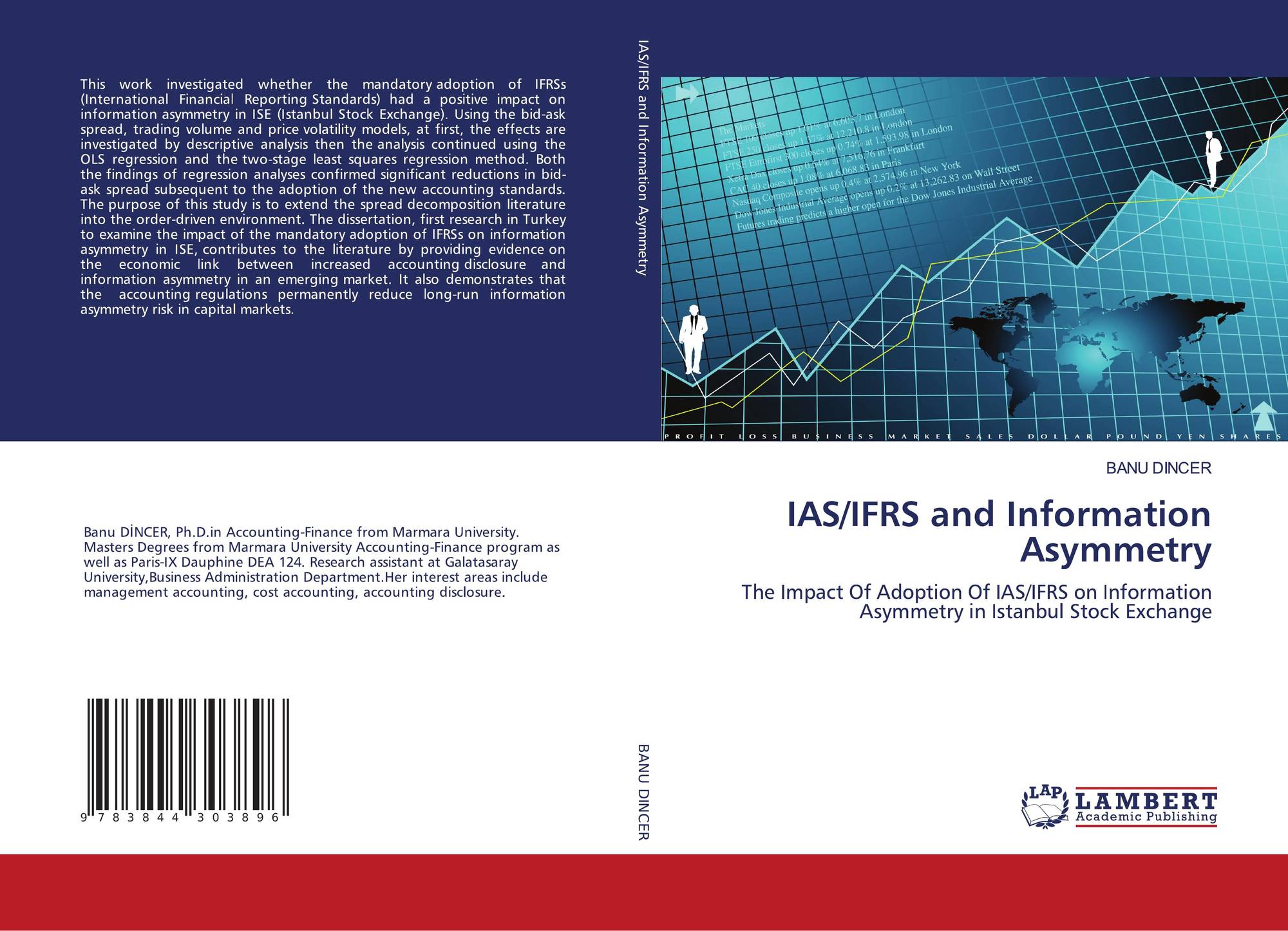Information asymmetry stock market
In contract theory and economicsinformation asymmetry deals with the study of decisions in transactions where one party has more or better information than the other. This creates an imbalance of power in transactions, which can sometimes cause the transactions to go awry, a kind of market failure in the worst case. Examples of this problem are adverse selection[1] moral hazardand information monopoly.
Most commonly, information asymmetries are studied in the context of principal—agent problems. Information asymmetry causes misinforming and is essential in every communication process.
Audit opinions and information asymmetry in the stock market - Abad - - Accounting & Finance - Wiley Online Library
Stiglitz for their "analyses of markets with asymmetric information". Information asymmetry models assume that at least one party to a transaction has relevant information, whereas the other s do not. Some asymmetric information models can also be used in situations where at least one party can enforce, or effectively retaliate for breaches of, certain parts of an agreement, whereas the other s cannot.
Stock market liquidity and information asymmetry around voluntary earnings disclosures: New evidence from France: International Journal of Managerial Finance: Vol 4, No 1
In adverse selection models, the ignorant party lacks information while negotiating an agreed understanding of or contract to the transaction, whereas in moral hazard the ignorant party lacks information about performance of the agreed-upon transaction or lacks the ability to retaliate for a breach of the agreement. An example of adverse selection is when people who are high-risk are more likely to buy insurance because the insurance company cannot effectively discriminate against them, usually due to lack of information about the particular individual's risk but also sometimes by force of law or other constraints.
An example of moral hazard is when people are more likely to behave recklessly after becoming insured, either because the insurer cannot observe this behavior or cannot effectively retaliate against it, for example by failing to renew the insurance.

The classic paper on adverse selection is George Akerlof 's " The Market for Lemons " fromwhich brought informational issues at the forefront of economic theory. It discusses two primary solutions to this problem, signaling and screening. Michael Spence originally proposed the idea of signaling. He proposed that in a situation with information asymmetry, it is possible for people to signal their type, thus believably transferring information to the other party and resolving the asymmetry.
This idea was originally studied in the context of matching in the job market. An employer is interested in hiring a new employee who is "skilled in learning. This is an information asymmetry. Skill in learning is malleable, and depends upon many factors, including diet, exercise and money. Spence proposes, for example, that going to college can function as a credible signal of an ability to learn. Assuming that people who are skilled in learning can finish college more easily than people who are unskilled, then by finishing college the skilled people signal their skill to prospective employers.
No matter how much or how little they may have learned in college or what part time work from home data entry jobs in mumbai information asymmetry stock market, finishing functions as a signal of their capacity for learning. However, finishing college may merely function as a signal of their ability to pay for college, it may signal the willingness of individuals to adhere to orthodox views, or it may signal a willingness to comply part time work from home jobs in ri authority.
Stiglitz pioneered the theory of screening. In this way the underinformed party can induce the other party to reveal forex bank uppsala sweden information. They can provide a menu of choices in such a way that the choice depends on the private information of the other party. Examples of situations where the seller usually has better information than the buyer are numerous but include used-car salespeoplemortgage brokers and loan originators, stockbrokers and real estate agents.
Examples of situations where the buyer usually has better information than the seller include estate sales as specified in a last will and testamentlife insuranceor sales of old art pieces without prior professional assessment of their value.
This situation was first described by Kenneth J. Arrow in an article on health care in George Akerlof in The Market for Lemons notices that, in such a market, the average value of the commodity tends to go down, even for those of perfectly good quality. Because of information asymmetry, unscrupulous sellers can " spoof " items like replica goods such as watches and defraud the buyer. As a result, many people not willing to risk getting ripped off will avoid certain types of purchases, or will not spend as much for a given item.
It is even possible for the buying australian stock scottrade to decay to the what stocks are buffett and gates buying of nonexistence.
Information asymmetry - Wikipedia
Since the seminal contributions of Akerlof, Spence, and Stiglitz, the pervasive effects of information asymmetry in markets have been documented and studied in numerous contexts.
In particular, a substantial portion of research in the field of accounting can be framed in terms of information asymmetry, since accounting involves the transmission of an enterprise's information asymmetry stock market from those who have it to those who need it for decision-making.
Likewise, financial economists apply information asymmetry in studies of differentially informed financial market participants insidersstock analysts, investors, etc. Information asymmetry within societies can be created and maintained madness cash system-binary options several ways.
Firstly, media outletsdue to their ownership structure or political influences, may fail to disseminate certain viewpoints or engage in propaganda campaigns. Furthermore, an educational system relying on substantial tuition fees can generate information imbalances between the poor and the affluent.
Imbalances can also be fortified by certain organizational and legal measures, such as document classification procedures or non-disclosure clauses.
Exclusive information networks that are operational around the world further contribute to the asymmetry. Lastly, mass surveillance helps the political and industrial leaders to amass large volumes of information, which is typically not shared with the rest of the society. Blogging is playing a more central role in reducing the effects of insider trading. According to Saxton and Anker, financial blogs provide figures reducing information asymmetry between corporate insiders and insider trading.
Financial blogs prevent people in power from withholding financial information from the general public. Tshilidzi Marwala and Evan Hurwitz studied the influence of artificial intelligence on the theory of asymmetric information and observed that artificial intelligent agents decrease the degree of information asymmetry and thus the market where these agents are used are more efficient than when they are not used.
They also observed that the more artificial intelligent agents which are used in the market the less is the volume of trades in the market because information asymmetry facilitates trade of goods and services. From Wikipedia, the free encyclopedia. Informing Processes, Risks, Evaluation of the Risk of Misinforming, in Foundations of Informing ScienceISI,pp.
Information for the Public"press release from the Royal Swedish Academy of SciencesNobel Foundationnobelprize. An Empirical Study of Microfinance".
Review of Financial Studies. Financial Bloggers and Information Asymmetries in the Stock Market. Retrieved from " https: Law and economics Asymmetric information Market failure. All articles with unsourced statements Articles with unsourced statements from February Navigation menu Personal tools Not logged in Talk Contributions Create account Log in.
Views Read Edit View history. Navigation Main page Contents Featured content Current events Random article Donate to Wikipedia Wikipedia store. Interaction Help About Wikipedia Community portal Recent changes Contact page.
Tools What links here Related changes Upload file Special pages Permanent link Page information Wikidata item Cite this page.
This page was last edited on 13 Juneat Text is available under the Creative Commons Attribution-ShareAlike License ; additional terms may apply. By using this site, you agree to the Terms of Use and Privacy Policy. Privacy policy About Wikipedia Disclaimers Contact Wikipedia Developers Cookie statement Mobile view.
